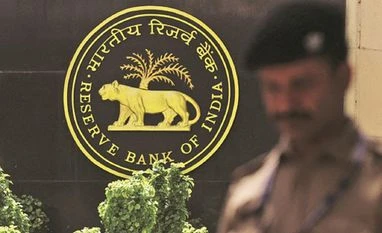The Reserve Bank of India (RBI) on Thursday expanded the scope of the Bharat Bill Payment Systems (BBPS) as part of an attempt to enable non-bank payment aggregators (PAs) to participate in the system as operating units and encourage greater participation.
BBPS is an integrated bill payment platform that enables payment and collection of bills through multiple channels including mobile apps, bank branches, among others. Various payment methods such as Unified Payments Interface (UPI), internet banking, prepaid payment instruments (PPIs), among others can be used to pay bills.
The banking regulator said entities that are authorised to operate as PAs, including those who have been granted in-principle authorisation, can participate in BBPS as operating units. These revised directions shall be called the Reserve Bank of India (Bharat Bill Payment System) Directions, 2024, and will be applicable from April 1 this year.
“In view of significant developments in the payments landscape, a need was felt to review and update these regulations. Accordingly, as announced in the Statement on Developmental and Regulatory Policies dated June 08, 2023, it has been decided to put in place a revised regulatory framework - Bharat Bill Payment Systems Directions, 2024,” the central bank said in a press release.
Currently, 18 firms including Razorpay, Cashfree, Amazon Pay, among others have received a final RBI nod to operate as payment aggregators. The regulator has granted in-principle authorisation to 32 entities to operate as PAs.
“The RBI has allowed all the PAs to function as operating units without any further incremental licensing process and join BBPS. PAs would not need any further authorisation to get themselves on board the bill payments system,” said a person privy to the development.
The person said the latest guidelines ease the participation for companies who would like to become operating units on BBPS.
More From This Section
“The number of participants on the system will go up,” the person added.
RBI’s revision to the rules will supersede the earlier BBPS-related guidelines or circulars. Apart from non-bank PAs, banks including all scheduled commercial banks, regional rural banks, urban cooperative banks, state cooperative and district central cooperative banks and other existing entities authorised as Bharat Bill Payment Operating Units (BBPOUs) can participate in BBPS as operating units, the regulator said.
BBPOUs are the system participants in BBPS. A BBPOU may function either as a Biller Operating Unit (BOU) or a Customer Operating Unit (COU) or both. Existing BBPOUs include companies such as PayU, PhonePe, MobiKwik, Infibeam Avenues, among others, according to the information on the RBI website.
Under the previous rules, an applicant to BBPS was required to have a net worth of ~25 crore at the time of application for authorisation. The same amount was required to be maintained at all times.
“The last circular mentioned a net worth of ~25 crore for applicants. It is yet to be seen with the regulator if the same will apply to the PAs or not,” the person quoted above added.
A non-bank BBPOU shall open an escrow account with a Scheduled Commercial Bank exclusively for BBPS transactions, the regulator has said.
“For the purpose of maintenance of escrow account, payment system operated by BBPOU shall be deemed to be ‘designated payment system’ under Section 23A of the PSS Act, 2007 (as amended from time to time),” it added. The revision to these regulations comes as the regulator cracked down on Paytm Payments Bank. In a list of frequently asked questions (FAQs) released this month, the central bank clarified that users can continue to make payments from the Paytm Payments Bank account through the Bharat Bill Payment System up to the balance available in your account.
“Since you will not be able to credit any further funds into your accounts or wallets with Paytm Payments Bank after March 15, 2024, it is advised that you may make alternative arrangements with another bank account for BBPS before March 15, 2024,” the regulator had said.
Paytm Payments Bank received final approval from the RBI to operate as a BBPOU in January last year.
Value of Rs 2,000 note in circulation down at Rs 8,470 cr
The Reserve Bank of India (RBI) said the value of Rs 2,000 banknotes in circulation had declined to Rs 8,470 crore at the end of February 29 from Rs 3.56 trillion as on May 19, 2023. According to the RBI’s press release, “97.62 per cent of Rs 2,000 banknotes in circulation as on May 19 has since been returned”. Aathira Varier
)